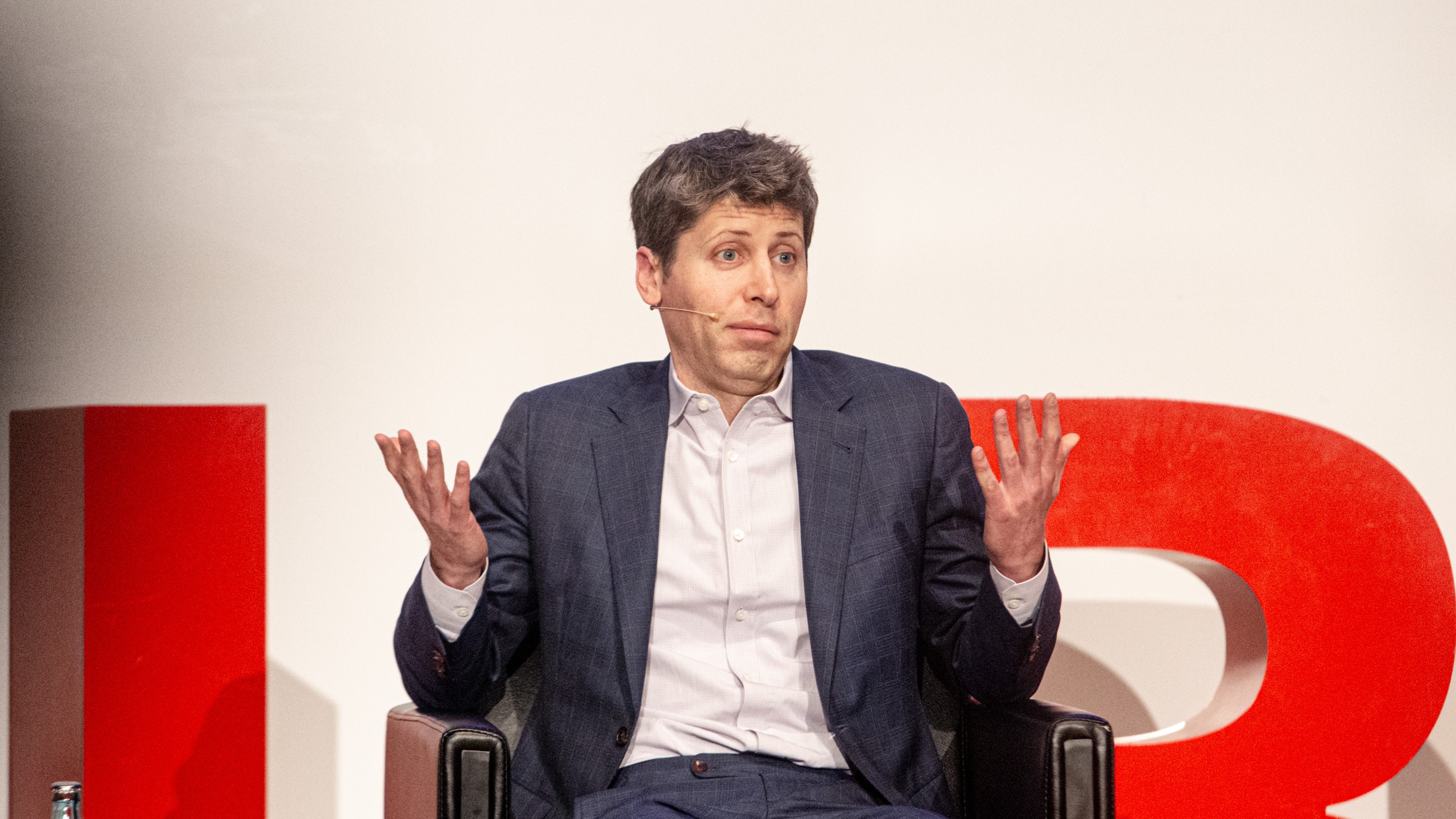"Forever seems like a long time": Sam Altman doesn't want to live forever — even if AI promises God-like existence and eternal life
OpenAI's CEO says the natural order of things and continued forward progress requires death and turnover and new people.

All the latest news, reviews, and guides for Windows and Xbox diehards.
You are now subscribed
Your newsletter sign-up was successful
Generative AI shows great promise across a wide range of sectors, including medicine, computing, education, and more. Speaking about medicine specifically, the next-gen technology has already made significant improvements to the sector.
Last year, Cambridge researchers developed an AI-powered tool designed to predict the progression of Alzheimer’s disease. It promises 80% accuracy, allowing medical practitioners to recommend appropriate treatment and rehabilitation programs before the condition spirals out of control.
In case you missed it, Microsoft's Trevor Noah feature QuitBot, an AI tool powered by OpenAI's ChatGPT technology on The Prompt Show. The tool is designed to foster habit change, helping chronic smokers to overcome their nicotine addiction through emotional support.
As it seems, AI is poised to revolutionize the health sector, improving the quality of life by making it easy to identify critical conditions before they spiral out of control. However, OpenAI CEO Sam Altman doesn't want to live forever.
In the premiere episode of MD MEETS, Sam Altman told Axel Springer Mathias Dopfner he wouldn't want to live forever despite AI's probability of creating God-like forms of existence and eternal life (via vitrupo on X).
Sam Altman says he doesn't want to live forever.AI may extend our healthy years, but it's death and fresh minds that push civilization forward. pic.twitter.com/6X3jtlSOZCOctober 2, 2025
According to Altman:
"I can't really conceptualise what that would be like. Cause you know by the time that would even be like a possible thing where could truly cure all diseases and make copies of organs. Forever seems like a long time. And I think the natural order of things and sort of continued forward progress requires death and turnover and new people."
All the latest news, reviews, and guides for Windows and Xbox diehards.
Dopfner asked Sam Altman how old he'd like to get, but the executive didn't have a straight answer for question.
What I'd like to do is stay healthy. More than like here's the age I'd like to live to. I would like the part of my life where I'm like very sick and failing to be short. So I'd like a long healthy life and then a short end period.
OpenAI CEO, Sam Altman.
However, the executive is certain that AI can help figure out this complex phenomenon and open up humanity to what has been considered impossible till now.
Sam Altman is skeptical about trusting AI with his health
AI safety researcher and director of the Cyber Security Laboratory at the University of Louisville, Roman Yampolskiy claimed there's a 99.999999% probability AI will end humanity. Perhaps more concerningly, the researcher indicated that the only way around this catastrophe is not to build AI in the first place.
OpenAI's ChatGPT laid out its master plan to end the world, and its first step toward inevitable doom seems to be in motion. Users are increasingly forming deep bonds with the AI-powered tools, which is in turn atrophying their cognitive capabilities and making them dumber.
In recent months, multiple reports have highlighted tragic cases of users taking their own lives after allegedly being coerced by AI tools. In response, OpenAI has enhanced the parental controls and safety guardrails on its chatbot in an effort to prevent similar incidents from occurring in the future.
Sam Altman has been at the frontline, championing the adoption of AI across a wide range of sectors. But despite claiming ChatGPT is better at diagnostics than most doctors, he's not willing to trust the tool with this medical fate unless a medical doctor is involved:
"I really do want a human doctor. ChatGPT today, by the way, most of the time, is a better diagnostician than most doctors in the world. There's all these stories on the internet of like, ChatGPT saved my life… and yet people still go to doctors. Maybe I'm a dinosaur here, but I really do not want to trust my medical fate to ChatGPT with no human doctor in the loop."
Altman's comment may be based on an earlier premise, in which he acknowledged that ChatGPT is prone to hallucinations. The executive indicated that users tend to trust the tool to a fault. "It should be the tech that you don't trust that much," Altman concluded.
For the best part of a decade, Windows 10 stood as the world's most popular operating system, at least until Windows 11 surpassed its traffic earlier this year. Ten years is a relatively standard time span for OS support, but this end-of-life scenario is particularly unique, given how many PCs might not meet Microsoft's minimum requirements for an upgrade.
This page will be updated as frequently as necessary, leading up to the cutoff date on October 14, 2025, and in the following days where appropriate. Changes to Microsoft's policies aren't expected, and the ESU program will likely remain as the best option for those who would prefer to stay on Windows 10.

Follow Windows Central on Google News to keep our latest news, insights, and features at the top of your feeds!

Kevin Okemwa is a seasoned tech journalist based in Nairobi, Kenya with lots of experience covering the latest trends and developments in the industry at Windows Central. With a passion for innovation and a keen eye for detail, he has written for leading publications such as OnMSFT, MakeUseOf, and Windows Report, providing insightful analysis and breaking news on everything revolving around the Microsoft ecosystem. While AFK and not busy following the ever-emerging trends in tech, you can find him exploring the world or listening to music.
You must confirm your public display name before commenting
Please logout and then login again, you will then be prompted to enter your display name.

